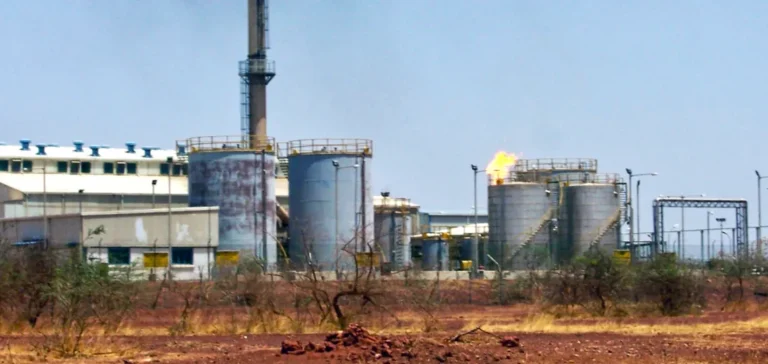South Sudan plans enhanced technical cooperation with China National Petroleum Corporation (CNPC) to resume activity in oil fields severely impacted by internal conflicts. The national oil production, currently fluctuating between 60,000 and 90,000 barrels per day (b/d), remains below the historical peak of 350,000 b/d recorded in 2011.
Priority on key oil field rehabilitation
A cooperation plan was established between the South Sudanese Ministry of Petroleum and CNPC following a meeting held in Juba on June 16. The agreement notably includes the rehabilitation of existing infrastructure in the oil-producing states of Unity, Ruweng, and Upper Nile. These strategic sites have suffered recurrent damage due to community clashes and chronic underinvestment in maintenance.
CNPC mainly operates oil blocks 3 and 7 in the Melut Basin, key areas where activities were halted for nearly ten months. Production capacity has fallen from over 200,000 b/d historically, with a revised target set at 90,000 b/d by 2025.
Persistent structural issues
For blocks 1, 2, and 4 in Unity State, the decline is even more pronounced, with capacity decreasing from an initial potential exceeding 50,000 b/d to approximately 7,000 b/d currently. These blocks have endured significant material damages from frequent vandalism and intercommunal conflicts, severely complicating their long-term exploitation and profitability.
To address these structural issues, the Sino-South Sudanese collaboration also includes specific initiatives such as resuming drilling activities, upgrading technical equipment, and intensively training local personnel. Deng Lual Wol, Undersecretary at the Ministry of Petroleum of South Sudan, confirmed the formation of a joint technical committee aimed at resolving operational and logistical challenges encountered by operators.
Renewed Chinese commitment
CNPC, for its part, has reiterated its long-term commitment to South Sudan’s oil sector. A representative from the Chinese company highlighted the group’s willingness to mobilise substantial resources and integrate modern technologies to support the recovery of the country’s oil industry.
However, the long-term success of this partnership hinges on several critical conditions, notably tangible improvements in economic governance, the establishment of a stable security framework for investors, and effective skills transfer. Thus far, economic benefits from previous international partnerships have been moderately perceived by local communities.
Deng Lual Wol thus emphasised the critical importance for the country to ensure that oil exploitation effectively benefits the national economy and citizens in the long run.






















